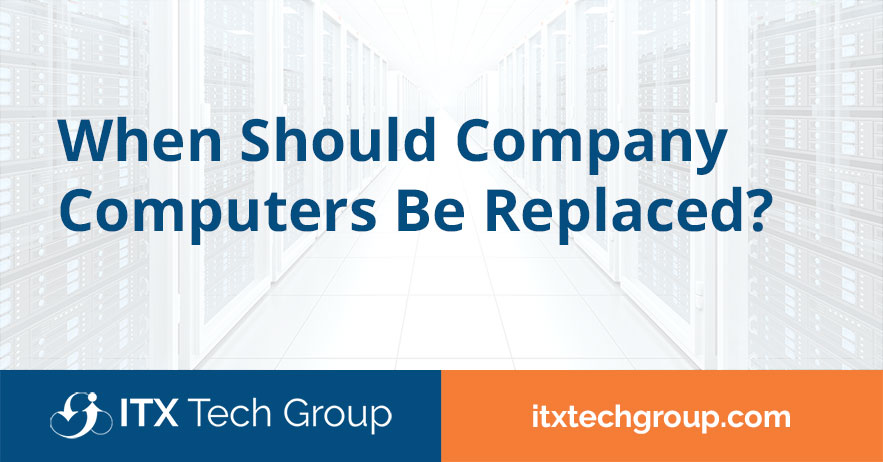In the fast-paced world of technology, company computers play a crucial role in driving business operations. As businesses rely heavily on their IT infrastructure, it becomes essential to determine the optimal time to replace aging computers.
Delaying replacements for too long can result in reduced productivity, security risks, and increased maintenance costs. Conversely, replacing computers too frequently can lead to unnecessary expenses.
In this blog article, we will explore key factors to consider when deciding when company computers should be replaced, striking a balance between efficiency, cost-effectiveness, and staying technologically current.
Performance and Productivity
One of the primary indicators that it may be time to replace company computers is declining performance. As computers age, their processing power and memory may become insufficient to run modern applications and multitasking efficiently.
Employees may experience slow response times, delays in executing tasks, and reduced productivity. If employees consistently report performance issues, it may be a sign that upgrading or replacing the computers is necessary.
Age and Lifecycle
A computer’s age is a significant factor in determining when it should be replaced. As a general rule of thumb, most business-grade computers have a useful life of around three to five years.
After this period, hardware components may begin to fail, and the cost of maintenance and repairs can become prohibitive. Keeping track of the age and lifecycle of company computers helps in planning for timely replacements.
Maintenance Costs
Frequent and expensive repairs are clear signs that a computer may be reaching the end of its useful life. As computers age, the risk of hardware failure increases, leading to higher maintenance costs.
Comparing the cost of repairs to the cost of replacement can help determine if it is more cost-effective to invest in new computers.
Technological Obsolescence
Advancements in technology occur rapidly, and older computers may not be compatible with the latest software and applications. Running outdated software on unsupported hardware can expose businesses to security vulnerabilities and operational inefficiencies.
Upgrading to newer computers ensures compatibility with the latest software and enables businesses to leverage cutting-edge technologies.
Security and Data Protection
Keeping company data secure is paramount. Older computers may lack the necessary security features and hardware advancements to protect against modern cyber threats adequately.
Newer computers often come with built-in security features like advanced encryption, secure boot, and biometric authentication, enhancing data protection and minimizing security risks.
Scalability and Business Needs
As companies grow and expand, their computing requirements evolve. The ability to scale computing resources efficiently becomes vital to support business growth.
Older computers may not have the processing power or memory to handle the demands of a growing organization. Replacing computers at the right time ensures that businesses can adapt to changing needs without interruptions or bottlenecks.
Environmental Considerations
Environmental consciousness is becoming a significant consideration for businesses. Older computers tend to consume more energy and contribute to electronic waste.
Upgrading to newer, energy-efficient computers not only reduces operational costs but also aligns with sustainable business practices.
Conclusion
Knowing when to replace company computers requires a careful assessment of performance, age, maintenance costs, technological advancements, security needs, scalability, and environmental impact.
Striking the right balance ensures that businesses remain competitive, productive, and secure, while also managing budgetary constraints.
Regularly evaluating the state of company computers and creating a well-defined hardware refresh cycle empowers businesses to make informed decisions and stay ahead in the ever-evolving digital landscape.
By investing in timely replacements, businesses can maintain a reliable and efficient IT infrastructure, driving success and innovation for years to come.
ITX Tech Group has been serving small, medium, and large scale businesses with their IT support needs all over the United States since 2011, so we’re confident we can provide you with affordable, professional IT solutions for years to come!
Connect with us for a free consultation to discuss your business technology needs.

